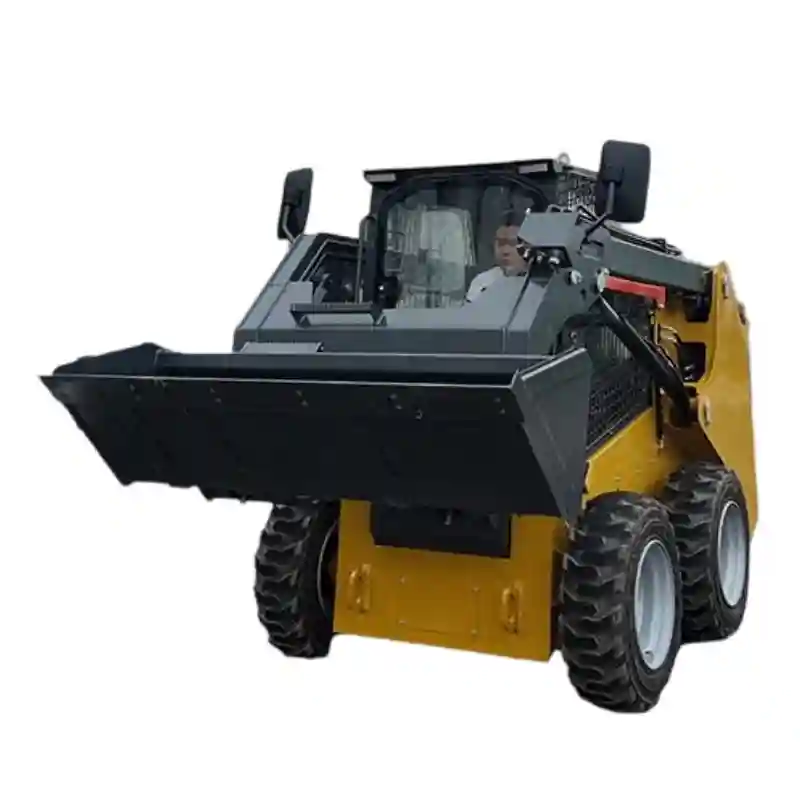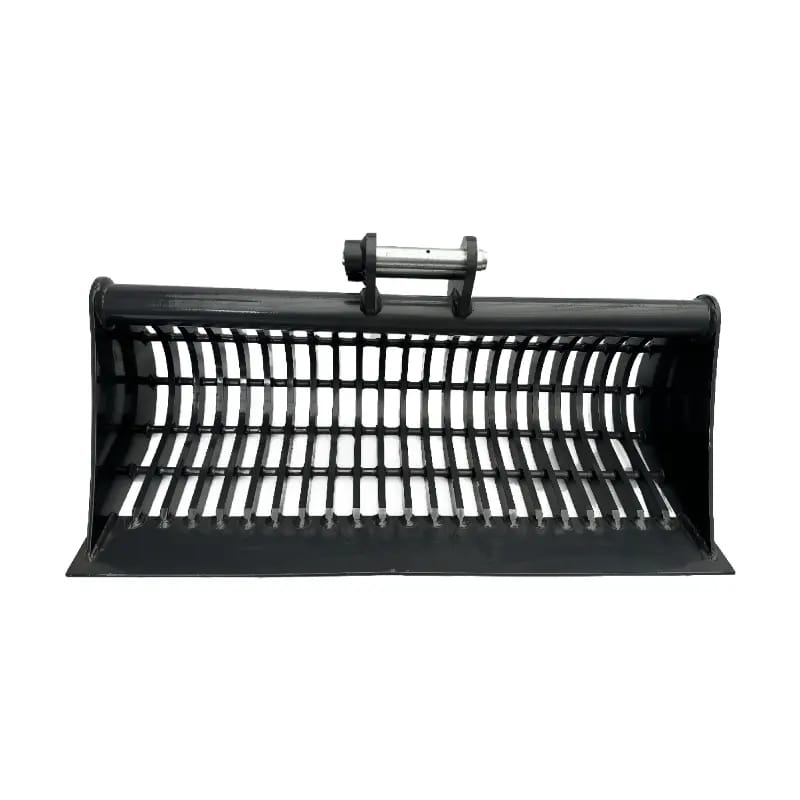In today’s highly competitive construction machinery market, Kubota, as a Japanese industrial giant with a history of more than 130 years, has earned an excellent reputation worldwide for its compact excavator products. As an integrated manufacturer with close cooperation with Kubota brand, we deeply understand the differentiated advantages of Kubota excavators in terms of power system, fuel efficiency, reliability and environmental performance. In this article, we will comprehensively analyze the technical advantages of Kubota’s excavator engines and, through an objective comparison with similar competitors, show why Kubota continues to lead the mini excavator industry in technology.
Kubota’s Brand Heritage and Excellence in Construction Machinery
Kubota Corporation, founded in 1890, has a long history of more than 130 years and is a benchmark company in the field of machinery manufacturing in Japan and around the world. The century-old company started out as a foundry and has grown into an industrial giant that spans a wide range of fields, including agricultural machinery, construction equipment, engine production, and environmental engineering. In the field of construction machinery, Kubota has been focusing on the development and manufacture of compact excavators since it began producing them in 1974, and is recognized as a world leader in compact excavator technology.
In November 2003, Kubota Construction Machinery (Shanghai) Co., Ltd. was formally established, marking Kubota’s inclusion of the Chinese market in its global strategic map, making it the fourth key market after Japan, North America and Europe. Through the establishment of a network of professional sales and service agents throughout China, Kubota will provide its world-class quality products to Chinese customers. It is worth mentioning that Kubota has maintained a leading position in the global mini excavator market for a long time, which is inseparable from its strategy of focusing on market segments – unlike other brands that pursue a full range of product coverage, Kubota chooses to plow deeper into the mini excavator field and focuses its limited resources on the most competitive product lines1. The success of Kubota’s excavators is absolutely unique.
The success of Kubota’s excavators is no accident, but is based on three core pillars: first, the ability to continuously innovate in research and development, with about 5% of sales invested in R&D each year; second, a stringent quality control system, with all engines and machines tested for durability in extreme environments; and third, a comprehensive after-sales service network that ensures that users can get timely technical support and parts supply anywhere in the world. Thirdly, the perfect after-sales service network ensures that users can get timely technical support and spare parts supply anywhere in the world. These advantages together constitute Kubota’s unshakable market position in the field of mini excavators.
Explanation of Kubota’s core technical advantages
The excellent performance of Kubota excavators largely stems from its self-developed, high-quality engines, which are significantly better than the industry average in a number of technical dimensions. Taking the D722-BH-4 engine equipped in the Kubota U-10-3Alpha excavator as an example, this 3-cylinder diesel engine has a displacement of only 719 cc, but it is capable of delivering a rated power output of 7.4 kW (approx. 10 hp), with an excellent power density at 2050 RPM.1 This small-displacement, high-output feature allows the Kubota compact excavator to provide a high level of output, while still maintaining a compact body. While maintaining a compact body, it still provides ample power to cope with a variety of complex working conditions.
uel economy is one of the most recognized advantages of Kubota engines. By adopting the advanced TVCS (Three Vortex Combustion System) combustion system and high-pressure common rail fuel injection technology, Kubota engines achieve extremely high combustion efficiency. Actual application data shows that under the same workload, Kubota engines save 15%-20% of fuel compared to similar products.410 This fuel efficiency not only reduces users’ operating costs, but also reduces carbon emissions, reflecting Kubota’s perfect balance between economic efficiency and environmental performance. Taking the Kubota V3300 engine as an example, this product for generator sets has an extremely low fuel consumption rate at full load operation, and a single refueling can support 8.8 hours of continuous operation.
In terms of environmental performance, Kubota engines are also at the forefront of the industry. All series of engines comply with the world’s most stringent emission standards, such as EU Stage V and U.S. EPA Tier 4 Final, and some models even meet the requirements of future emission regulations several years ahead of schedule.210 This is due to the combination of Kubota’s original Exhaust Gas Recirculation (EGR) system and Selective Catalytic Reduction (SCR) technology, which reduces the nitrogen oxides (NOx), nitrogen dioxide (NOx), and nitrogen oxides (NOx) of the engine without sacrificing the power performance. (NOx) and particulate matter (PM) emissions are minimized without sacrificing power performance. For example, the Kubota D902 engine not only meets EU Stage V emission standards, but has also received EPA-4 certification, which is ample proof of its advanced environmental technology.
Reliability and durability are another significant advantage of Kubota engines. All Kubota engines are subjected to more than 2,000 hours of rigorous durability testing before leaving the factory, simulating a variety of extreme operating conditions to ensure stable performance in actual use.2 Key components such as crankshafts, cylinder blocks and piston rings are made of special alloys and strengthened processes, making the engine’s lifespan 2-3 times longer than that of ordinary products.6 According to the feedback from long-time users, the engine overhaul interval can easily exceed 100,000 hours under normal maintenance conditions. engine overhaul intervals can easily exceed 10,000 hours under normal maintenance conditions, which brings significant whole-life cost advantages to equipment owners.
The low vibration and low noise design of Kubota engines is also commendable. Through its precision-machined balance shaft system and optimized engine structure, Kubota has succeeded in controlling vibration and noise at industry-leading levels. For example, the DELEKS M180 mini excavator equipped with Kubota’s D902 engine operates at a much lower noise level than its competitors, making it ideal for noise-sensitive operations in residential and urban environments.9 This humanized design not only improves operating comfort, but also reduces noise pollution, reflecting Kubota’s “human-centered” product philosophy.
Objective Performance Comparison between Kubota Engine and Competitors
In the field of construction machinery, Kubota engines are often compared with internationally recognized brands such as Yanmar and Caterpillar. Through systematic comparative analysis, we can have a clearer understanding of the differentiated advantages of Kubota engines. In the comparison with Yanmar engines, although both are outstanding representatives of Japanese brands, Kubota is better suited in the field of agricultural and construction engineering machinery, while Yanmar has its traditional advantages in marine power.
From the perspective of fuel efficiency, test data show that the Kubota engine’s fuel consumption rate under medium load conditions is about 8%-12% lower than that of the similar Caterpillar C7.1 engine, a difference that brings considerable cost savings to users against the backdrop of high oil prices.47 Especially in the intermittent operating mode commonly used by small excavators, the Kubota engine’s transient response is more outstanding, able to The Kubota engine has excellent transient response characteristics, and can quickly adapt to load changes without significant fuel efficiency loss. On the other hand, some European and American brand engines, despite their impressive maximum power parameters, often do not have the same overall fuel economy as Kubota’s products in actual operation.
In terms of ease of maintenance, Kubota engines are clearly designed with the practical needs of end users in mind. Compared with Caterpillar engines, Kubota’s routine maintenance points are more centralized and easily accessible, saving 30%-40% of the time for routine maintenance work such as filter replacement and oil filling.47 In addition, Kubota has established a dense spare parts supply network around the globe to ensure that parts needed for repairs are delivered in a timely manner, dramatically reducing equipment downtime losses due to waiting for parts. In contrast, the parts supply cycle for certain European brand engines can take weeks in some regions, seriously affecting users’ normal production activities.
Cold start performance is an important indicator of diesel engine quality, and Kubota engines show obvious advantages in this regard. Even at temperatures as low as -15°C, Kubota engines start reliably without additional auxiliary heaters, whereas some competitors rely on preheating plugs or starting fluid for proper ignition.210 This feature has made Kubota excavators a favorite in cold regions such as Russia and Canada. Kubota achieved this breakthrough by optimizing the shape of the combustion chamber and injection timing, reflecting its deep accumulation of basic research on diesel engines.
In terms of market feedback, Kubota engine user satisfaction continues to be higher than the industry average. Surveys in the construction equipment rental industry show that the repair rate of mini excavators equipped with Kubota engines is 35%-40% lower than the market average, which directly translates into higher equipment attendance and rental revenue.15 Especially noteworthy is the fact that Kubota engines are more tolerant of poor-quality fuels, which is a decisive advantage in areas with poor infrastructure and enables Kubota equipment to operate in markets with varying fuel quality. market where fuel quality varies, enabling Kubota equipment to maintain stable operation.
As an integrated manufacturer with close cooperation with Kubota, we have witnessed how Kubota maintains its leading position in the field of mini excavators through continuous innovation and lean manufacturing. From core engine technology to complete machine system integration, from traditional power to new energy layout, Kubota has always been oriented to user needs and driven by technological breakthroughs, writing its own legend in the global construction machinery market. For users pursuing high efficiency, low cost and sustainable operation, Kubota excavators are undoubtedly the smartest choice now and a reliable investment for the future.





